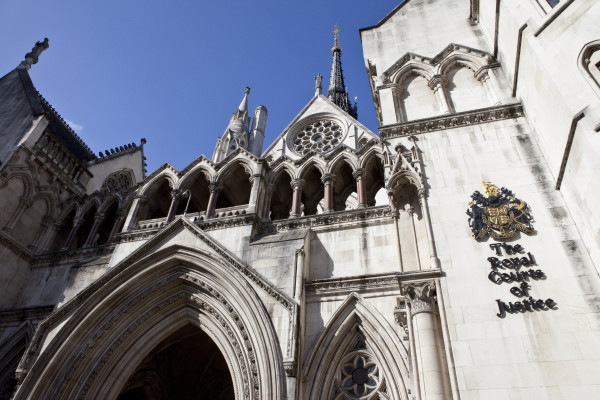

Six trades unions want to take the government to court in a bid to stop it imposing the cost of the McCloud remedy on their members, with one considering strike action.
The Public and Commercial Services Union, the Fire Brigades Union, the GMB Union, the Royal College of Nursing, Unite and the POA Union have filed for a joint judicial review on Wednesday (December 15), with PCS in particular looking to force the government to allow a 2 per cent cut in pension contributions, initially promised as part of the 2016 valuations, to go ahead.
A judicial review is a court proceeding in which a judge considers the lawfulness of a decision made by a public body. It cannot be filed directly; the court needs to be asked for permission first.
The decision to transfer the cost of the McCloud remedy to the 2016 valuation has angered several unions, as the government initially promised that favourable outcomes to those valuations would result in increased benefits and reduced contributions.
The cost of the McCloud remedy, however, which unions and the Public Accounts Committee have pointed out was for a Treasury mistake to begin with, means that what might once have been a positive outcome has been wiped out, which the unions say constitutes a broken promise to their members.
Mark Rowe, national officer for the Fire Brigades Union, explained: “The government is trying to make public sector workers pay via a scheme in their pensions called 'cost control'. Cost control adjusts pension contributions or benefits if the actual cost of the pension scheme diverges from the target cost of the pension scheme by 2 per cent or more, with workers losing out if the actual cost is higher.
“It was the government who introduced the cost control mechanism into the new pension scheme. The mechanism provided that savings from the new scheme should be passed on to those scheme members. The government now wish to ignore the legislation that made that provision, legislation that they introduced.”
The PCS, in particular, contends that its members have been “robbed”, forced to overpay into their civil service pension in the last two years and losing, on average, £1,000. The BMA made a similar claim in November.
PCS general secretary Mark Serwotka said: “Our members and key workers across the public sector have kept the country running during the pandemic and yet the government, their employer, has treated them appallingly. Bringing this case is a significant, united step in fighting this great injustice.”
PCS holding a strike ballot
PCS announced on Monday that it will launch a consultative ballot on strike action in the new year, as a combination of a pay freeze, inflation, April’s national insurance hike and the McCloud “pensions robbery” have left its members facing a cost-of-living crisis.
The union, which is the sixth largest in the UK and the largest representing civil servants and other public sector employees, stressed that the consultative ballot will not determine strike action, but “will ask members what action they would be prepared to take”.
“A statutory industrial action ballot might follow later,” it added.
It has branded the government’s attempts to place the costs of the McCloud remedy on its members an “outrageous and unjustifiable government interference in the Civil Service Pension Scheme’s valuation and cost cap processes in recent years”.
'Unjustifiable' government interference
Public sector schemes were told in October to conclude their 2016 valuations after the pause in the cost cap mechanism, brought in in response to the McCloud judgement in 2019, was lifted following Treasury amendments to the mechanism.
PCS contends that the original results showed a breach in the ‘floor’ of the public sector cost cap, showing that the future cost of the scheme had been “exaggerated” and there was more money to spend on reducing employee contributions - by around 2 per cent - and improving benefits.
However, revising the valuation with the costs of the McCloud remedy included will mean there is no such breach, and so the promised increase in benefits cannot go ahead.
The union argued that Treasury changes to the cost control mechanism will “tear up the original basis of the cap, making it likely that there will never be a breach in future.
“Compounding this already diabolical approach towards scheme members, the government is proposing that the full cost of the remedy will be loaded into the current four-year valuation period, rather than being spread over a longer time,” it said.
“This is completely unjustified, given that most members will not decide on their portion of remedy cost until they approach retirement.”
A HM Treasury spokesperson said: “We cannot comment on ongoing litigation.”
Benjamin Mercer is a reporter at FTAdviser's sister publication Pensions Expert



